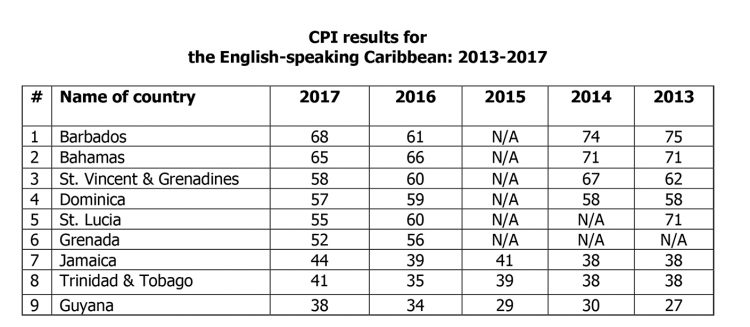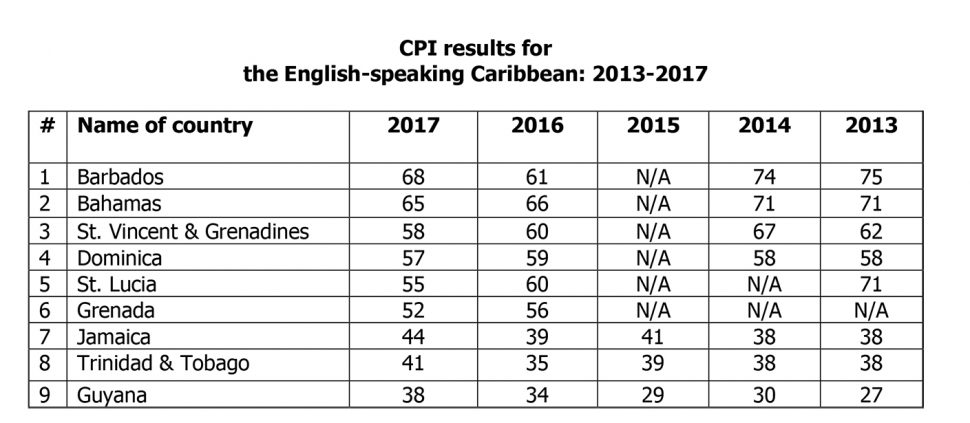In our last two columns, we emphasized the need for political parties to prepare and submit their election manifestos to guide the electorate in their choice as to which party they will support in the forthcoming elections constitutionally due by 20 March, following the successful vote of no confidence in the APNU+AFC Coalition. In the past, election manifestos played little or no meaningful role in such choice, as citizens voted overwhelmingly along ethnic lines for the two main political parties, the PPP and the PNC, regardless of their performance while in government. Successive governments’ lack of accountability to the electorate for their stewardship responsibilities has resulted in Guyana not achieving its full potential in terms of economic and social development for its citizens.
There were signs that this pattern of voting was changing when the Alliance For Change (AFC) came on board, especially for the 2011 and 2015 elections. However, since it entered into a coalition with the APNU, the AFC failed miserably to deliver on its promises to hold its senior coalition partner to account and to provide the much-needed checks and balances against a party with a very checkered history of governance, transparency and accountability, especially during the period 1968 to 1985. As a result, the AFC has lost most of its political support, as evidenced by its extremely poor showing in last year’s local government elections.
The Guyanese society has become once again severely polarized, especially since last month’s vote of no confidence. Political scientists and observers may want to consider whether the level of ethnic polarization currently being experienced exceeds that which existed during the early 1960s onwards. The two major political parties must acknowledge and accept that they have failed the nation and must take responsibility for Guyana remaining the third poorest nation in the Western Hemisphere, despite being endowed with vast amounts of natural resources, even prior to the discovery of oil.
We had begun a review of the APNU+AFC 2015 Election Manifesto to facilitate an assessment of the extent to which the Coalition Government has kept its promises to the electorate as well as of its performance to date. So far, we have reviewed the opening statements from the then presidential and prime ministerial candidates of APNU+AFC. However, in the light of the recent launching of the A New and United Guyana (ANUG) party, we must delay any further assessment to enable us to examine the key proposals of the new party as contained in the presentations of the speakers. For the time being, we will consider the presentations as an abbreviated version of ANUG’s election manifesto, pending the submission to the electorate of comprehensive document outlining the new party’s proposals to take the country forward during the next five years and beyond.
Official Launch of ANUG
Last Friday, ANUG was officially launched at Moray House in Georgetown, with leading figures being former Speaker of the National Assembly Ralph Ramkarran, former government Minister and political scientist Henry Jeffrey, Attorney-at-law Timothy Jonas and businessman Beni Sankar. Based on the presentations made at the launch, ANUG’s main goal is shared executive governance through constitutional reform. It has also given a commitment: (i) to provide the balance of power; (ii) not to coalesce with any of the two major political parties; (iii) to fight corruption with international support; (iv) to have in place codes of conduct for government and State officials enshrined in the law; (v) to ensure that Guyana’s energy needs are met through renewable sources by 2025; and (vi) to eliminate dependence on fossil fuels.
Shared Governance
Within one month of acceding to office, ANUG indicated that it would begin a process of constitutional reform to have shared executive governance. This implies that, in the management of the affairs of the State, the winner of the elections will enter into an arrangement with the other political parties participating in the elections for the sharing of Cabinet and ministerial positions based on some agreed formula, such as their relative standing in the polls. This is indeed an admirable proposal which, if implemented with the utmost good faith intentions, is likely to bring together the two mainly ethnic groups together in shared governance of the country.
The proposal for shared governance can be traced back to the 1970s when the then ruling PNC and the Opposition PPP were in dialogue to have such an arrangement in place. Regrettably, the proposal was shelved when President Burnham died in 1985. For the 1992 elections, the PPP gave a firm commitment of ‘winner will not take all’, if elected to office. It, however, reneged on its promise after it won the elections. Two of the founder members of ANUG were key players in the post-1992 Administration. Perhaps they could explain the role they played in relation to efforts to have shared governance and why the PPP reneged on its promise.
No Coalition
Guyana has had so far two bitter experiences with coalition governments. First, it was the United Force (UF) which was deliberately formed with the assistance of foreign powers to team up with the PNC in order to oust the PPP from office because of the latter’s political orientation. No sooner that this was done than the senior partner made life so difficult for the UF that the coalition was brought to an end for the 1968 elections. From there on the electoral process was severely tampered with to perpetuate a minority, unelected and authoritarian regime that lasted until 1992. There can no longer be any denying that this happened, and during this period the greater section of the population became marginalized. Those of us who have lived through this period can attest to the truth in these statements. Mr. Beni Sankar alluded to this when he stated that when one of the two major political parties is in power, the other section of the electorate feels abandoned and discriminated against.
Notwithstanding the pretense otherwise, in reality there is currently no APNU+AFC coalition. The AFC has allowed its senior partner to outsmart it on all fronts, despite having superior bargaining power within the Coalition. Its leaders, Ministers and parliamentarians have become so enamoured with their new-found positions of power and authority and the related benefits they derive from such positions, that they sacrificed the public interest and the public good to satisfy their personal ambitions and interests. The AFC has become the rubber stamp for the actions of its senior partner and has been consumed by and subsumed into APNU.
Smarting from what has happened to the UF and AFC, ANUG has pledged not to enter into a coalition with any of the two main political parties. This pledge will be legally binding, and a member of the public could seek judicial intervention if ANUG failed to honour its pledge. If the court rules in favour of that member, ANUG’s members would resign from Parliament.
Providing Balance of Power
This implies that, should the results of the forthcoming elections indicate that ANUG does not have the plurality of votes to form the Government, it will provide the balance of power in relation to any parliamentary decision. Given what happened in the 2011 and 2015, there is a strong possibility that there will be a minority government. In order for motions and Bills to pass in the National Assembly, the Government will have to count on the support of one or more Opposition parties.
Dealing with Corruption
ANUG has stated that it would deal condignly with corruption with the help of Transparency International and the United Nations. Guyana is a signatory to the United Nations Convention Against Corruption (UNCAC) and the Inter-American Convention Against Corruption (IACAC). Both conventions have detailed provisions, if implemented in a serious and dedicated way, are likely to reduce corruption in a significant way.
We also have strong constitutional provisions dealing with public finance, supported by comprehensive legislation such as the Fiscal Management and Accountability Act, the Procurement Act, the Anti-Money Laundering Act, and the Integrity Commission Act. The problem is one of enforcement, and over the years our elected leaders have paid lip service to the provisions of UNCAC, IACAC and our constitutional legislative arrangements. As a result, Guyana remains at the bottom of the table from among the English-speaking countries in the Caribbean in terms of the Corruption Perception Index (CPI), as shown below.
 Transparency International will be publishing the 2018 CPI on 29 January 2019. We eagerly await the results of TI’s assessment on Guyana.
Transparency International will be publishing the 2018 CPI on 29 January 2019. We eagerly await the results of TI’s assessment on Guyana.
Codes of Conduct for Government and State Officials
ANUG stated that, if elected to office, it would ensure that codes of conduct for Government and State officials are enshrined in the law. However, such a provision is already in place in Schedule II of the Integrity Commission Act. The codes were revised and gazetted on 13 June 2017 based on the following ten principles, known as the Nolan Principles: accountability, dignity, diligence, duty, honour, integrity, loyalty, objectivity, responsibility and transparency.
By Section 27(2), any person in public life who is in breach of any of the provisions of the Code of Conduct shall be liable, on summary conviction, to a fine of G$25,000 and to imprisonment for a period of between six months to one year. For more details, readers are referred to our column of 13 August 2018 under the caption ‘Ministerial Accountability and Responsibility, and the Conduct of Conduct’.
The problem again is one of enforcement. Over the years and especially during the last three years, several breaches of the Code have occurred involving Ministers of the Government, Parliamentarians and senior public officials. However, there was no evidence of any action taken against the officials involved.
To be continued

